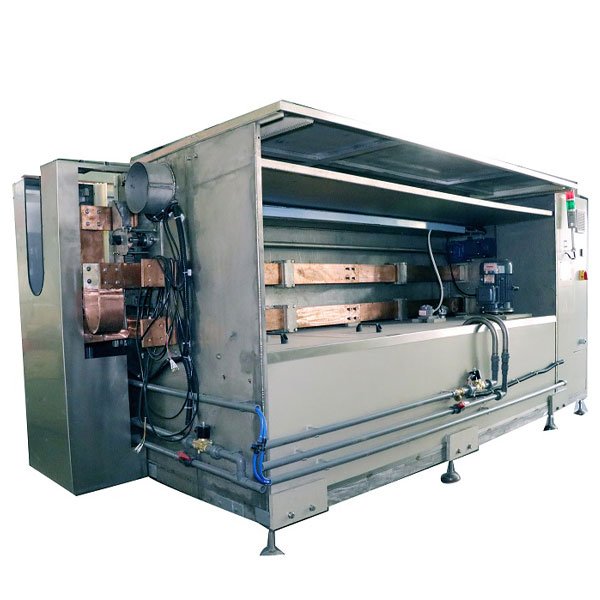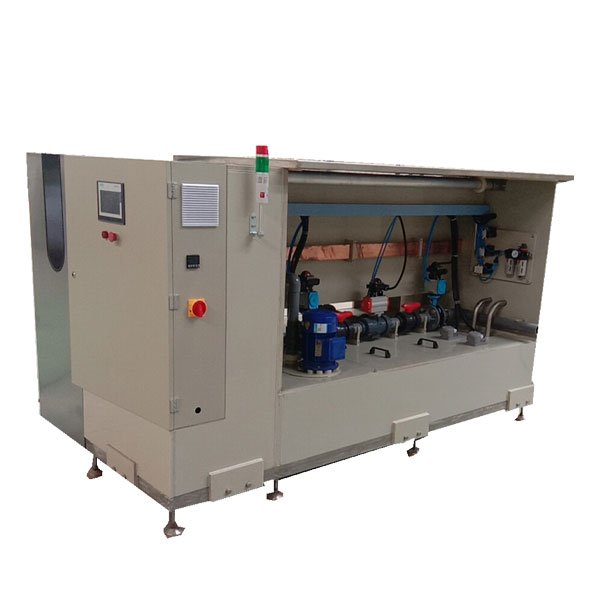Hard Chrome Plating Bath
Chrome Bath Purification is a contaminant removal equipment that removes Nickel and Copper pollutants from a Cr3 plating bath.
The Chrome bath is frequently polluted by Copper and Nickel during Trivalent Chrome plating. Copper contamination commonly occurs on jigs and busbar surfaces, whereas nickel contamination occurs on component surfaces. Plate quality suffers as the concentration of these contaminants rises.
Nickel Plating Bath
Nickel plating is done for a variety of reasons. Nickel, first and foremost, has a decorative appearance due to its ability to hide flaws in the base metal (levelling). Nickel deposits can be rendered brilliant, and if they’re covered in a tiny layer of ornamental chromium, they’ll stay that way even in harsh environments.
Nickel and chrome plating are widely utilised in the mechanical, furniture, and faucet industries. Steel, brass, zamak, and aluminium parts can all benefit from the technique. Trivalent chrome has just been proposed as an alternative for hexavalent chrome for environmental reasons.
Hard Copper Bath
Hard Copper Bath is all about Acid copper deposits with a thickness of up to 40 microns. Passivation is required after the treatment to prevent transient oxidation.
Copper plating tanks are manufactured and supplied by US Automation in Gujarat. Copper Plating Tanks are made using high-quality raw materials and advanced technologies. Plating with copper Copper plating tanks for gravure cylinders are available from Galvanoline Copper. It can handle both shafted and hollow cylinders thanks to its unique adaptor design. Tanks are long-lasting and low-maintenance, thanks to high-quality materials and extensive experience.
Soft Copper Bath
The technique of electrolytically plating a coating of copper on the surface of an item is known as Soft copper plating. Electrolysis, which employs direct electric current to dissolve a copper rod and deliver the copper ions to the object, takes place in an electrolytic cell. A copper rod and the item are placed in a container of water. A direct electric current can travel from the copper rod to the item because the water includes an ionic solution. The anode is the copper rod, and the cathode is the item. This current flow leads the copper to ionise, or become oxidised, which means that each atom loses an electron and becomes positively charged.
Copper ions dissolve in water and create a coordination complex with salts that are already present. The copper then goes to the object, where it is physically reduced to the metallic state by gaining electrons. This results in a thin, firm, metallic copper film on the item’s surface.
De-chrome Bath
A fundamental and vital technique to begin the plating process, and this is why we fabricate to simplify Nickel plating requirements so you may get started quickly. The process of depositing nickel on a base cell is known as nickel electroplating. Before plating can begin, the parts must be clean and free of dirt, corrosion, and flaws. A mixture of heat treatment, cleaning, masking, pickling, and etching may be employed to clean and protect the item during the plating process.











